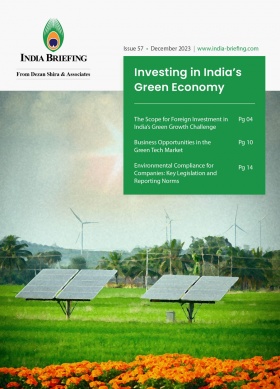Leveraging Section 80EEB: Tax Benefits for Businesses on Electric Vehicle Loans
India has in place tax incentives for businesses and individuals taking loans to buy electric vehicle units. We discuss the relevant provisions under Section 80EEB of the Income Tax Act, 1961.
In a significant move towards promoting sustainable and eco-friendly transportation, the Government of India has introduced tax incentives for businesses investing in electric vehicles (EVs). Section 80EEB of the Income Tax Act, 1961, outlines provisions that allow businesses to claim deductions on interest payments made on loans for electric vehicles, including electric two-wheelers.
READ: EV Sector in India: Production Capacity, Government Targets, and Market Performance
Understanding Section 80EEB: Section 80EEB serves as a catalyst for the adoption of electric mobility by offering financial incentives to individuals and businesses. Enacted to stimulate the electric vehicle market, this provision is not limited to four-wheelers but extends its benefits to two-wheelers and three-wheelers as well.
Eligibility criteria: To harness the tax benefits under Section 80EEB, businesses must adhere to the following conditions:
- Loan source: Businesses need to secure loans for the acquisition of electric vehicles from either financial institutions or non-banking financial organizations.
- Approval timeline: The loan approval must fall within the period between April 1, 2019, and March 31, 2023.
- Vehicle specifications: The electric vehicle must meet the definition specified in the Income Tax Act, 1961, being exclusively powered by an electric motor with a traction battery and a regenerative braking system.
Deduction amount: Businesses can claim deductions on interest payments up to INR 150,000 under Section 80EEB. This provision makes it advantageous for businesses using electric vehicles for their operations, as they can offset a substantial portion of the interest paid on loans.
Documentation requirements: To substantiate their claims, businesses must maintain comprehensive documentation, including the interest paid certificate, tax invoice, and loan paperwork. Ensuring all necessary documents are readily available is crucial for smooth tax return submissions.
Key benefits of Section 80EEB deductions for businesses:
- Loan amount limit: The deduction is applicable on the interest payments on loans sanctioned on or after April 1, 2019, up to March 31, 2023, with a maximum limit of INR 150,000.
- Vehicle type: The deduction is specifically designed for loans taken to procure electric vehicles, aligning with businesses’ green initiatives.
- Ownership: To qualify for the deduction, the business must be the owner of the electric vehicle for which the loan is obtained.
Conclusion: As businesses increasingly embrace sustainable practices, Section 80EEB emerges as a valuable tool for companies investing in electric mobility solutions. Beyond the environmental benefits, the financial incentives provided by the government offer a compelling reason for businesses to transition to electric vehicles, contributing to a greener and tax-efficient future.
In navigating the complexities of tax regulations, businesses are advised to seek professional guidance to ensure compliance and optimize the benefits available under Section 80EEB. As we progress towards a more sustainable future, leveraging tax incentives becomes not only a strategic move but also a responsible business choice.
About Us
India Briefing is produced by Dezan Shira & Associates. The firm assists foreign investors throughout Asia from offices across the world, including in Delhi and Mumbai. Readers may write to india@dezshira.com for more support on doing business in India.
We also maintain offices or have alliance partners assisting foreign investors in Indonesia, Singapore, Vietnam, Philippines, Malaysia, Thailand, Bangladesh, Italy, Germany, and the United States.
- Previous Article The Scope for Foreign Investment in India’s Green Growth Challenge
- Next Article Third-Party Logistics to Continue Pushing Up Leasing Demand in India in 2024: CBRE Report








